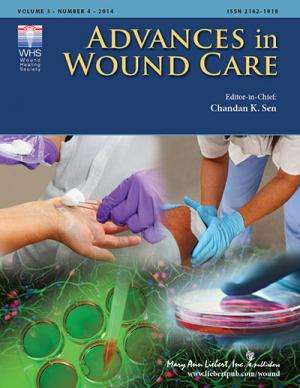Promising role for interleukin-10 in scarless wound healing

The powerful anti-inflammatory compound interleukin-10 (IL-10) plays a crucial role in regenerative, scarless healing of fetal skin. Studies of IL-10 in postnatal skin wounds have demonstrated its promise as an anti-scarring therapeutic agent, as described in a Critical Review article published in Advances in Wound Care.
In "Regenerative Wound Healing: The Role of Interleukin-10," Sundeep Keswani and co-authors, Cincinnati Children's Hospital Medical Center (OH), and Children's Hospital Colorado and the University of Colorado School of Medicine, Aurora, review the complex processes, cell types, growth factors, and other agents needed for successful wound healing. The authors explore the ability of fetal skin to heal without scars and describe the results of ongoing studies to develop IL-10 as an anti-scarring agent.
"Regenerative healing in adults is approachable through lessons learnt from fetal wounds," says Editor-in-Chief Chandan K. Sen, PhD, Professor of Surgery and Director of the Comprehensive Wound Center and the Center for Regenerative Medicine and Cell-Based Therapies at The Ohio State University Wexner Medical Center, Columbus, OH.
More information: The article is available free on the Advances in Wound Care website.















